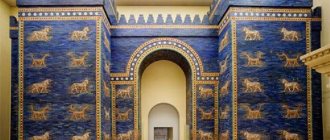Who is the writer?
The Bible was written by approximately 40 men. They were all Jews. This does not mean at all that God behaved as a nationalist, because the Holy Scriptures are a book for all nations. But Israel is the first country that gave birth to the largest number of righteous people and prophets, selflessly devoted to God. Those who wrote the Book of Books had a great responsibility to accurately convey the Word of God to mankind. It was this, and not the diversity of the ethnic composition of its authors for the sake of modern tolerance, that was the main goal of our Heavenly Father.
List of authors
The Bible is written in very rich, simple, varied and lively language. It was created by kings, shepherds, prophets, priests, fishermen, and representatives of other professions and social classes.
Philippe de Champagne. Prophet Moses 1648
Authors of the Old Testament:
- Moses (Pentateuch, Book of Job, Psalm 89);
- Joshua (the final verse of Deuteronomy and the Book of Joshua);
- Samuel (Books of Joshua (final), Judges, Ruth, 1st and 2nd Kings, beginning of 3rd Kings);
- Nathan and Gad (1st and 2nd Kings);
- Jeremiah (1st and 2nd Kings, Book of Jeremiah, Lamentations);
- Ezra (1st and 2nd Chronicles, Book of Ezra);
- Mordecai (Book of Esther);
- Nehemiah (Book of Nehemiah, completion of 2 Chronicles);
- David and the sons of Korah ( Psalms );
- Solomon (Proverbs, Psalms, Ecclesiastes, Song of Songs);
- Agur (Proverbs).
Who is the author of the Bible?
For believers, the author of the Holy Book is the Lord, but experts can challenge this opinion, since it contains the Wisdom of Solomon, the book of Job and more. In this case, answering the question of who wrote the Bible, we can assume that there were many authors, and everyone made their own contribution to this work. There is an assumption that it was written by ordinary people who received divine inspiration, that is, they were only an instrument, holding a pencil over the book, and the Lord led their hands. When figuring out where the Bible came from, it is worth pointing out that the names of the people who wrote the text are unknown.
What language was the Bible originally written in?
Scripture was originally compiled in three ancient languages:
- Jewish;
- Aramaic;
- Greek
Structure of the Bible. Scheme
All the books of the Old Testament and the Gospel of Matthew in Hebrew Aramaic was the official language of the Persian Empire and the means of international communication throughout the vast Middle East. With its help, parts of the books of Ezra and Daniel were written, and most of the New Testament was written in ancient Greek.
This shows the wisdom of God and His love for all the peoples of the earth:
- Thanks to the conquests of Alexander the Great and the general Hellenization that followed, Greek was the most widely spoken language in the Mediterranean.
- It is also a language of precise terms. Philosophers and scientists of Greece used special words to describe human qualities and ethical concepts, which helped convey the essence of Christian morality to pagan peoples in the most accessible way.
- In the first century AD, joined the Christian congregation .
Interesting fact
The creation of the books of the New Testament in Greek suggests that the apostles went beyond narrow national thinking and looked at the world through the prism of the all-encompassing love of an impartial God.
Who wrote the Old Testament
Having decided on the composition of the Holy Scriptures, we can return to the question of authorship.
This problem is primarily directly related to the Pentateuch (Genesis, Exodus, Numbers, Leviticus, Deuteronomy), which contains the most important postulates of belief in One God. These included the Ten Commandments; Jewish and then Christian morality were based on them. For a long time, the fact that these books were written personally by the prophet Moses was not questioned. The only deviation from this interpretation, allowed by the rigid early Jewish priests, is that the last 8 verses of Deuteronomy, which tell about the death of Moses, were written by Joshua. Some Pharisees still insisted that these lines were written by Moses himself, to whom a revelation was sent about how he would end his last days.
However, the more carefully and longer the Christian and Jewish scribes read the Pentateuch, the clearer the contradictions that existed in it became. For example, in the list of kings who ruled the people of Judah, those who lived after the death of Moses are also mentioned. This can also be explained by divine providence. However, why certain stories are narrated twice in the Pentateuch, with obvious discrepancies, is more difficult to explain.
Still, the fear of being accused of blasphemy was too strong. Only in the 18th century did the German Johann Eichhorn and the Frenchman Jean Astruc propose the version that the Pentateuch is a mixture of two primary sources together. They proposed to distinguish them by the name of God. In the first case he is called Yahweh, and in others he is called Elohim. In this regard, the sources acquired the names Elohist and Yahwist.
In the 19th century, this theory was developed by other researchers who suggested that the number of primary sources was greater. Current biblical scholarship believes that there are at least 4 sources in the Pentateuch.
A similar story happened with the books of the prophets Ezekiel and Isaiah. Based on the textual analysis of the Song of Solomon, we can conclude that it was most likely written in the 3rd century BC. e. Thus, 700 years later than the times when King Solomon was still alive.
Read this article: Prayer Creed. You might be interested...
What year did it appear?
The exact date of the beginning of the creation of the Bible is unknown. Presumably this happened in the 15th-14th centuries. BC, when Moses began writing Genesis.
How old is the Bible
The Bible is an entire sacred library consisting of 66 books. Its writing ended at the end of the first century AD. Thus, the entire creation of the Bible took about 1600 years. About 3,500 years have passed since her first book appeared. If we take the Holy Scripture as a whole, then it has existed for more than 1900 years. This means that the Bible is one of the most ancient books that has reached the modern reader.
Greek text of the Old Testament
As for the Septuagint (Greek Bible), it is generally accepted that the Pentateuch was translated into Greek in the first quarter of the 3rd century. BC under Ptolemy II Philadelphus (285–246). A little later - the rest of the books. This is the oldest translation of the Bible into any language. The role of the Septuagint in reconstructing the Jewish protograph is enormous—and would be even greater if we could unambiguously reconstruct the protograph of the Septuagint itself.
The fact is that, since ancient times, the Septuagint has been constantly edited, verified with the Hebrew text, and influenced by later translations of the Old Testament from Hebrew into Greek (translations of Aquila, Symmachus, Theodotion, which appeared at the beginning of our era). Therefore, the discrepancies between different Septuagint manuscripts are almost more numerous than the discrepancies between the Septuagint and the Masoretic text. And the task of recreating the Septuagint protograph is as difficult to accomplish as the task of recreating the Jewish protograph.
The stabilization of the Septuagint text was observed only with the advent of printed editions. It is characteristic that the printed editions of the Greek Old Testament, used in the Greek Orthodox Church, are very different from the text of the scientific, critical editions of the Septuagint. Publications of the Greek Church are based on late medieval manuscripts. Critical publications strive to restore the text from the Hellenistic era.
When they talk about the Septuagint, what do they mean? Protograph of the Hellenistic era that textual critics seek to restore? Modern publications of the Greek Orthodox Church? Byzantine lectionaries? It is advisable whenever you say “Septuagint” or “Greek Bible” to clarify which manuscript (family of manuscripts) or which edition is meant.
What did the Jews call the first part of the Bible?
The Old Testament in Hebrew is called Seraphim. However, another name is more popular: Tanakh. This is an abbreviation-acronym, where the consonants indicate the three components of the Jewish canon:
- Torah (Law given to Israel through Moses);
- Nebim (Prophets);
- Ketuvim (Scriptures).
Torah scroll open for public reading in a synagogue
Interesting facts about the Bible
Given the popularity of Holy Scripture, it will not surprise anyone that research was carried out and this revealed a lot of interesting information:
- Jesus is mentioned most often in the Bible, with David in second place. Among women, Abraham's wife Sarah receives the laurels.
- The smallest copy of the book was printed at the end of the 19th century using the photomechanical reduction method. The size was 1.9x1.6 cm, and the thickness was 1 cm. To make the text readable, a magnifying glass was inserted into the cover.
- Facts about the Bible indicate that it contains approximately 3.5 million letters.
- To read the Old Testament you need to spend 38 hours, and the New Testament will take 11 hours.
- Many will be surprised by this fact, but according to statistics, the Bible is stolen more often than other books.
- Most copies of the Holy Scriptures were made for export to China. Moreover, in North Korea, reading this book is punishable by death.
- The Christian Bible is the most persecuted book. In all of history, there is no other work known against which laws were passed, for violation of which the death penalty was imposed.
Briefly about the second part of the Bible
The New Testament contains all the information we need to draw closer to our Heavenly Father and His Son. The four Gospels tell the story of the life and teachings of Jesus Christ . If we want to be faithful to Him, we must study His words and imitate the example He left.
The Book of Acts tells of the amazing spread of the gospel by the apostles after the execution, return to life, and ascension of the Lord.
Next come the letters of the apostles to the congregations of first-century Christians. They contain a model of Christian communication built on love. The apostles encouraged, taught, corrected and warned fellow believers against the influence of false teachings. The messages are also important because they contain explanations of the teachings of the Messiah, as well as prophecies.
The most mysterious book of the New Testament is the Revelation of John the Theologian. The future events awaiting the Church and all humanity are recorded there.
The Hebrew Bible and the Greek Bible: Different Ages, Different Worlds
The Masoretic Text and the Septuagint do not diverge from each other in the same way that, say, the Alexandrian and Codex Sinaiticus diverge from each other. They belong to different eras, different worlds.
The chief virtue of the Hebrew Old Testament (as far as we can reconstruct it) is that it is original. This is a voice from the world in which the Old Testament was written. The Masoretic text, for all its differences with the protograph, retains its ancient Near Eastern flavor.
The main advantage of the Greek Old Testament is not that it can serve as a source for editing the Hebrew text in several dozen or even hundreds of places. The Greek Bible (more precisely, Greek Bibles, if we take into account the variability of the Greek tradition) is evidence of how the Bible sounded and was understood in the Hellenistic-Roman world, in the era of the New Testament. This is the first Bible of the Christian Church, the Bible of the Fathers, the Bible of our liturgy.
Each of these two textual traditions is important to us in its own way, and this duality is rooted in the dual nature of the Old Testament itself in the Christian canon. On the one hand, the Old Testament is a Hebrew text that came to us from the world of the ancient Near East, pre-Christian, even pre-Hellenistic. On the other hand, the same Old Testament is part of the Christian Holy Scripture.
From this point of view, even those readings of the Greek Bible that are the result of cultural or theological editing by translators are still valuable and interesting for us.
The principle “the earlier, the more important,” characteristic of Protestant textual criticism, is by no means indisputable for the Catholic and Orthodox traditions. The Creed dates back to the 4th century; this does not bother anyone in the Orthodox Church, and it does not occur to anyone to “defend” the Creed by trying to prove that its author is Jesus Himself. The text of the Creed is later than the confession of faith of the Ante-Nicene fathers. What of this? Our religious tradition lives in time. And Scripture lives in time.
Our faith in its religious depth goes beyond the boundaries of history. But its verbal expression lives in history. A theologian could speak in this case about the divine-human nature of Scripture and the Church, draw analogies with Christological dogmas... But I am not a theologian, but a philologist.
How did it all end in the Bible?
The historical part of Scripture ends with a message about the persecution of Christians by the Jewish and Roman authorities. The Apostle Paul - as a citizen of the empire - went to Rome to be judged by Caesar. Tradition adds that he was executed here.
The Crucifixion of St. Peter is a painting by Caravaggio painted in 1601 for the Cerasi Chapel in the Church of Santa Maria del Popolo in Rome, along with The Conversion of Saul on the Road to Damascus (1601).
The last to leave the earthly vale was the Apostle John. But before that, while in exile on the island of Patmos, he wrote down the Revelation from God. It gives firm hope that the righteous will defeat Satan and the world under his control, and evil will be destroyed forever. Human civilization will reach its greatest prosperity and prosperity in the Kingdom of God.
And I saw a new heaven and a new earth, for the first heaven and the first earth had passed away, and the sea was no more.
And I, John, saw the holy city Jerusalem, new, coming down from God out of heaven, prepared as a bride adorned for her husband.
And I heard a loud voice from heaven, saying: Behold, the tabernacle of God is with men, and He will dwell with them; they will be His people, and God Himself with them will be their God.
And God will wipe away every tear from their eyes, and there will be no more death; There will be no more crying, no crying, no pain, for the former things have passed away.
(Rev.21:1-4)
What is the Bible?
Christians call the collection of books that make up the Holy Scriptures the Bible. It is considered the word of the Lord that was given to people. Much research has been done over the years to understand who wrote the Bible and when, so it is believed that the revelation was given to different people and the recordings were made over many centuries. The Church recognizes the collection of books as inspired by God.
The Orthodox Bible in one volume contains 77 books with two or more pages. It is considered a kind of library of ancient religious, philosophical, historical and literary monuments. The Bible consists of two parts: the Old (50 books) and the New (27 books) Testament. There is also a conditional division of the Old Testament books into legal, historical and teaching.
Why was the Bible called the Bible?
There is one main theory proposed by biblical scholars that answers this question. The main reason for the appearance of the name “Bible” is associated with the port city of Byblos, which was located on the Mediterranean coast. Through him, Egyptian papyrus was supplied to Greece. After some time, this name in Greek began to mean a book. As a result, the book the Bible appeared and this name is used only for the Holy Scriptures, which is why the name is written with a capital letter.
Why is there a dispute about authorship?
For hundreds of years, the authorship of biblical books has been controversial. There are several reasons for this:
- Not all authors are named (the book of Hebrews does not say who wrote it).
- A number of books have more than one author, as can be seen from Psalms and Proverbs.
- The text may have been edited by another person. Thus, the Second Epistle of Peter uses elegant Greek, which a simple fisherman would hardly be able to communicate with.
- Tradition may err in attributing the authorship of a book to someone who did not actually write it.
Some critics have gone so far as to question any involvement in the creation of the Bible by the people listed as its creators. But Christian researchers have compelling counterarguments. So, the Apostle Peter could ask a Christian who knew Greek well to write a message from his words. He just wrapped the apostle’s words in a beautiful verbal shell, which does not make him the author.
Is it really important to know for sure who wrote this or that book of the Bible? Literary critics tirelessly debate who actually wrote Hamlet or Quiet Flows the Don, and this does not stop readers from enjoying the classics. Another thing is important: how much biblical books can be trusted.
Which Bible can be considered the first?
Having figured out what language the Bible was written in, it will be interesting to know when it was written. Thus, over time, the Greek language ceased to be widely used, and Latin gained greater popularity. Most books were written in it, and all teaching was in Latin. Cassiodorus, an educated man who understood a lot about the grammar of the Latin language, saw the need to translate the Bible into this language. In addition, he had the opportunity to compare earlier manuscripts of the Holy Scriptures in different languages and understood what unforgivable errors were made during the translation.
Therefore, he gathered translators who were well versed in the grammar of the Latin language, and set before them the goal of creating a new, understandable translation. However, he did not put too much emphasis on grammar, but rather paid attention to the meaning. It combined the Vulgate in Latin, Old Latin translations and already existing codes (Sinaiticus, Vaticanus). As a result, the Grandior Codex, as it was later called, became the first translation that included all the books of the Bible. The codex dates back to approximately the 5th – 6th centuries AD. e., and in this form the Word of God has reached our days. Most often, the codex is considered the very first Bible that everyone is used to seeing.
The Bible was written by people, why should I believe it?
Other masterpieces have come down to us from antiquity: for example, Homer’s Iliad. However, we do not consider them as a guide to our entire life. What is the advantage of the Holy Scriptures over other books?
Because the Bible is a joint creation between God and man, it contains direct revelation from our Creator. This means that the information that is in the Bible is not found in any other source. In addition the Lord made sure that human imperfection and limited knowledge did not affect the accuracy of His message to people.
First of all, you must understand that no prophecy in the Scriptures comes from the imagination of the prophets,
because prophecy never came from what the prophet himself wanted to say, but, moved by the Holy Spirit, people spoke the messages of God.
(2 Peter 1:20,21, Modern Version)
Introduction
Today many people ask, “Why should I read the Bible?
It's not modern. The Bible was written 2000 years ago. How can the Bible help me solve problems today? How can we answer these questions? The Bible provides answers to people today who are wondering about the meaning and meaning of life. The Bible tells us who man is, what his purpose is, what is the source of his problems, and offers solutions to those problems. The Bible shows the perfect path in life. It contains reliable information about the origin of man and the material Universe; it records the ancient history of mankind; it reveals to us God and His wonderful plan of redemption.
“However,” you may ask, “why is it necessary to have a Bible? How can you be sure that the Bible is the Word of God?” Indeed, there are other ways in which God has addressed and addresses man at different times.
He expressed His will through signs (the rod of Moses), symbols (a pillar of cloud and a pillar of fire), dreams (Joseph, Pharaoh), direct communication (with Moses), the sacred Urim and Thummim, lots, visions, incarnation in Christ, answers to prayers , divine providence, nature, conscience and many other ways. But none of these methods has the most important property of constancy.
Recorded revelation is impartial, accessible, reliable, permanent, and generally accepted. This revelation cannot be replaced by anything. God has set His miraculous seal to authenticate His Word—miracles and fulfilled prophecies.
The word "Bible" comes from the Greek. “Biblion”, which means “scroll” or “book”. But what distinguishes the Bible is not only that it is a collection of books, but that it is the written Word of God. The Bible is God's unique Word to us.
Basic Facts about the Bible
1. How many books are there in the Bible?
39 books in the Old Testament
27 books in the New Testament
66 books in the entire Bible
2. How many authors wrote the 66 books of the Bible?
About 40 people wrote books of the Bible. These were people of various professions. Authors included peasants, kings, fishermen, missionaries, doctors, preachers, shepherds and government officials.
Z. How long did it take to write the Bible?
The Bible was written about 1600 years ago. The Book of the Prophet Job was written first. The exact date of its composition is unknown, but it was probably around 1500 BC. The book of Revelation was apparently written last, around 100 AD. All books of the New Testament were written in the 1st century AD (1 - 100 AD).
4. In what languages was the original Bible written? The Old Testament was written in Hebrew. Several passages from the books of the Old Testament may have been written in Aramaic. The New Testament is written in Greek.
How the Bible Was Written
1. Inspiration - what does it mean?
What does it mean when we say, “The Bible is an INSPIRED book”? How can we explain what we mean by this? This word appears in three verses in the Bible - 2 Timothy 3:16 and 2 Pet. 1:20.21. When we say that “the Bible is inspired,” we mean that the Holy Spirit directed the minds of people so that they wrote what the Lord wanted to be written. It is important to remember that the entire Bible is inspired by God. All books are equally inspired. There are no books in the Bible that are more or less “inspired by God.”
2. How did God inspire people to write the books of the Bible?
God did not tell them the exact words they should write down (in most cases). They did not sit and listen to a loud voice say, “This is the Lord speaking. This is what should be written in the 4th chapter of the Book of the Prophet Isaiah...” There are several instances in the Bible where God spoke the exact words to the author. For example, the Ten Commandments.
God did not mechanically move their hands. These people were not under the hypnosis of God when they received instructions to write books. God did not make these people robots. They were fully aware of what they were doing.
The Holy Spirit gave them thoughts that the authors expressed in their own words. Books of the Bible - The Word of God written in the style of the authors. God used many different people to write the books of the Bible. Some were highly educated, others were not. God took each person as he was and used him to write one or more books of the Bible. You will find many different styles of writing in the books of the Bible. Some are very simple. Others are more complex.
We can be confident that the Bible is true. She's accurate. There are no errors in it. Why? Because God cared about this matter, and He did not allow it to work poorly. The Bible is God's message to man. It is all true, and it is the TRUTH. Jesus makes this clear in His prayer in John 17:17, “Sanctify them through Thy truth: Thy word is truth.”
How can you be sure the Bible is accurate (true)?
The Bible was written thousands of years ago. How can we be sure that all the facts are presented accurately? How can we be sure that the Bible is true? How can we know that the text of the Bible has not been changed? Maybe it's full of errors? How do we know that people have not tampered with the Bible or changed it? We will look at a number of facts that help ensure that the Bible is accurate, true, and true. We can be sure that there are no errors in it.
1. All prophecies are true and accurate.
Prophecy is a message from God telling about future events. The Bible is filled with hundreds of prophecies, starting from the third chapter of Genesis and all the way through the text to the book of Revelation. God gives people many predictions. There is not a single false prophecy. Many prophecies in the Bible spoke about the first coming of Jesus. Each of these prophecies was fulfilled just as God predicted. There are many prophecies that have not yet been fulfilled. Many of them are related to the second coming of Jesus. If we look back at how each previous prophecy has been fulfilled, we can fully trust God regarding all the prophecies that relate to the second coming of Jesus.
2. The Bible says it is the Word of God.
The authors of the Bible clearly say that it is the Word of God. God guided them and told them what to write. The authors trusted God when He told them what to write (2 Pet. 1:20,21).
3. There are no contradictions in the Bible.
What is a contradiction? This is when two phrases seem true, but taken together they refute each other. This means that if one of the statements is true, the other must be false (not true). Both cannot be true at the same time.
The Bible is consistent. If one place of Scripture declares a truth, another place does not say that anything to the contrary is true. Sometimes things may seem contradictory. The problem is that often one only picks out part of a verse and therefore does not get the full picture of what the verse or chapter is saying.
4. The Bible is an indivisible whole.
The entire Bible is one message. The only reason for this integrity is the one Author who wrote the Bible. God is that Author. He oversaw the writing of all 66 books of the Bible. This is why there are no contradictions in the Bible.
5. Archaeological evidence.
Archaeological research has provided further evidence of the Bible's accuracy. There is not a single archaeologist who has proven that the Bible contains false facts about cities, kings, and customs.
In 1947, the Dead Sea Scrolls were discovered in what is now the State of Israel. These scrolls include copies (or parts) of all but one of the books of the Old Testament. Many of these scrolls were written 100-200 years before the birth of Christ. These copies of the Old Testament books are 1000 years older than all other copies of the Old Testament previously known.
When the Dead Sea Scrolls were compared to our Bible today, no significant differences were found. The Dead Sea Scrolls are a powerful fact that proves that our modern Bible is accurate and reliable. These scrolls give us compelling evidence that the Bible we have today tells us the same thing it told us when it was first written.
The Impact of God's Word
Our faith is born and strengthened from God’s Word (Rom. 10:17 “Faith therefore comes by hearing, and hearing by the word of God”). The more we delve into God's Word, the stronger God makes our faith.
The Bible is our spiritual nourishment: milk (1 Peter 2:1-2); bread (Matt. 4:4); solid food (Heb. 5:12-14).
Victory over sin (Ps. 119:11 “I have hidden Your word in my heart, so that I would not sin against You”). The Christian feels pressure from his own flesh. Sin certainly wants to overcome a believer, but God wants to give victory over all sin. Strength in victory over sin comes to the extent that God's Word is placed in the heart.
Victory over Satan (Eph.6:17 “…the sword of the Spirit, which is the Word of God”). When tempted in the wilderness, Jesus defeated Satan with the Word of God (Luke 4:1-14 “Jesus answered and said to him, It is written...”).
How to Study the Bible
Sometimes people shy away from reading the Bible because they are “afraid” of its thickness. In fact, the Bible can be read from cover to cover in 70 hours; Some books will only take a few minutes to read. Since the Bible is the pinnacle of world literature, the most famous and quoted book, any educated person should be familiar with its contents.
Begin your Bible study with prayer. The deepest knowledge of the Word comes with the outpouring of the grace of the Holy Spirit, who will “guide us into all truth” (John 16:13). Ask Him to reveal the holy mysteries and the glory of the Redeemer, hidden in the Old Testament and revealed in the New. Absorb what you read well. Become a doer of the Word, not a forgetful reader. Put these golden rules into action.
In a sense, the Bible should be read like any other book, sequentially, chapter by chapter, and preferably book by book. If you have limited free time, you can read the entire Bible in a year, spreading out three chapters each day and reading five chapters on Sundays. No matter which way you choose to read the Bible, daily study of God's Word should become a habit. Spending time alone with the Book of Books every morning will strengthen you physically, mentally and spiritually.
Study the Bible as a whole. Remember the titles of books so that they can be easily found and opened. The central theme of the Bible is redemption. Follow how this theme runs through the Bible: the fall, the punishment for sin, the meaning of forgiveness, the love of God despite man's disobedience, the ministry of prophets, priests and kings, the death and resurrection of Christ, the dispersion of Christians, the prediction of the second coming of Christ and the victorious establishing His Kingdom of grace throughout the entire earth. Once you are familiar with the Bible as a whole, you can use different methods to study it: by book, by chapter, by topic, by word.











